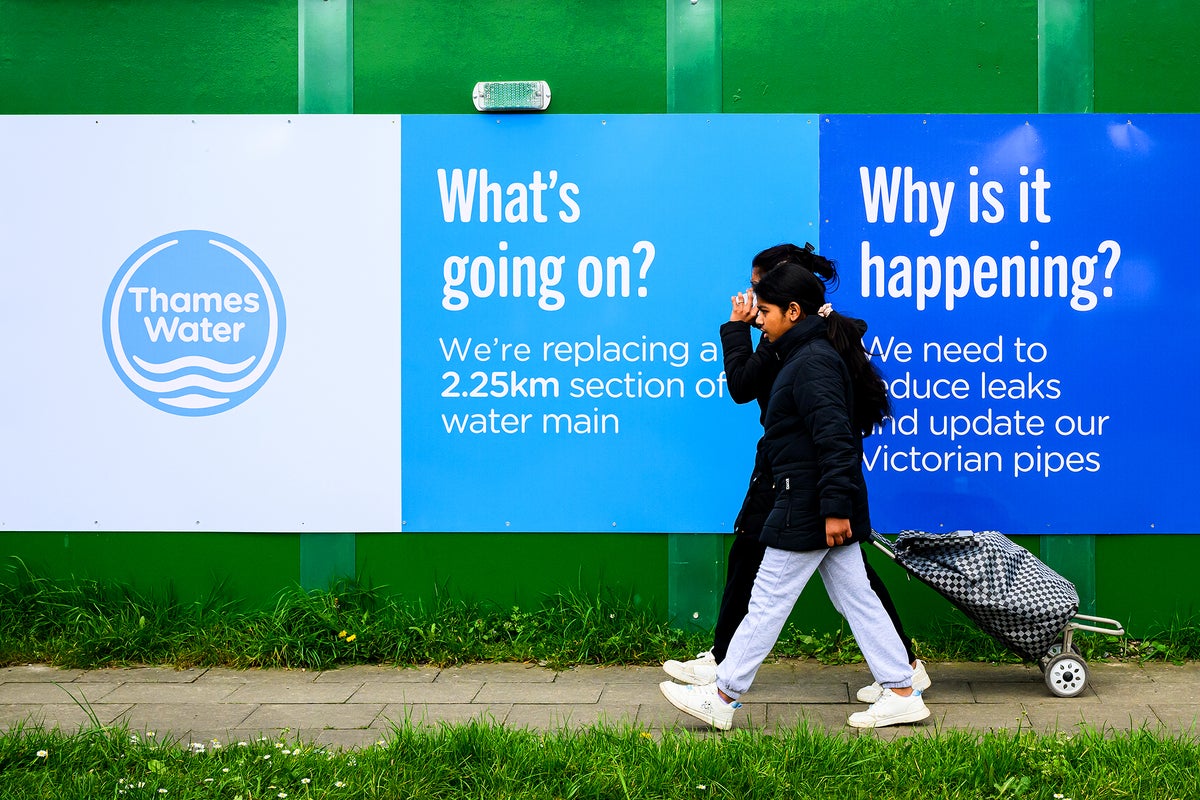The latest twist in the perma-crisis that is Thames Water came courtesy of the withdrawal of KKR from a rescue plan that now lies in tatters.
The US private equity firm would have overseen a much-needed £4bn recapitalisation of the debt-ridden company, likely involving some of the existing lenders.
Consumers may well have looked askance. KKR already has a substantial stake in Northumbrian Water, which has itself faced plenty of controversy – and fines – over sewage spills and overcharging and the other sins common to this industry.
But at least it wasn’t looking to renegotiate their bills, which are already due to rise by more than a third over the next five years.
The FT reported that it was hoping to reduce the vast fines faced by the firm – and the obvious problem with that is the message it sends to an industry that has done a rotten job. But it actually made some sort of sense given the company’s financial difficulties, so long as strings were attached. The problem with fines like the record £123m penalty imposed on Thames last week is that they will ultimately reduce the resources available to fix its problems (the money typically goes to the Treasury).
The decision by KKR, which has made no public comment, comes after weeks of extensive due diligence. Ultimately, the firm appears to have been defeated by both the complexity of the situation and the multiple competing stakeholders involved. Regulators, politicians and, not to put too fine a point on it, some very unhappy consumers who are understandably fed up with the regular sewage spills and the leaks they see going untreated on hot summer days when hosepipe bans are in force.
Thames is a distressed asset. If you can get in at a favourable rate and fix it, then (amazing though it may seem) there is the prospect of a handy return. Trouble is, fixing Thames looks like a Sisyphean task even without the multiple cooks stirring the pot.
Small wonder that customers are angry, and can’t understand how Thames managed to pay dividends and bonuses while they were being told that the thing was teetering on the brink and that they would have to pay (much) more for a shabby service.
It scarcely seems possible, but the water industry has somehow contrived to make a dysfunctional domestic energy market, and the companies operating within it, look good. Partly that’s down to Ofwat, which received its latest kicking courtesy of the Independent Water Commission (IWC), led by a former deputy governor of the Bank of England. It has somehow contrived to make energy regulator Ofgem look good.
The IWC, however, also fired a volley at the political oversight of the sector. It called for a “fundamental reset” identifying five key areas in need of a shake-up, ranging from strategy, to regulation, to ownership.
Thing is, this is not rocket science. The problems have been staring us in the face for years. I’ve been writing about them for years. It is a terrible indictment of Ofwat, and its political masters, that they have only gotten worse over time.
The trouble is, of course, that the dysfunctional water industry is a political hot potato no one wants to grasp. The current administration is falling into the same trap that its predecessors fell into on that front. Steve Reed, the environment secretary, actually had the gall to claim, in an interview with LBC, that “Thames remains stable”.
Mr Reed was obviously seeking to reassure people that they will still be able to turn the taps on and have access to clean water for cooking, cleaning and drinking. However, to describe Thames as “stable” is shockingly complacent. The preferred bidder has done a runner. Bosses are now scrambling to find a replacement from among the previous bidders, bondholders, hell, anyone willing to take on this sow’s ear of a business, which is making a stellar contribution to the sense of national rot that helps to explain the rise of populists like Nigel Farage.
It is often argued that nationalisation would not necessarily deliver a better outcome for the consumer, despite the consistently strong support among the public found by pollsters. And it is true that it would be dangerous to see it as a panacea. I suspect that a temporary spell in public ownership looks like the most likely endgame to this sorry saga.
But this is not a problem that can be solely fixed by the market, as this latest episode proves. Mr Reed needs to get a grip. So does Rachel Reeves, who is closely involved in this, given the borrowings Thames has. Keir Starmer, too. The current game of pass the buck isn’t doing anyone any favours – and there is a real risk that we’ll be here again in short order, even in the event that a private sector solution is somehow found.
The government needs to accept that it is going to have to get its hands dirty to clean up the water industry. The IWC’s interim report would be a good place to start. But Thames requires more immediate action.



